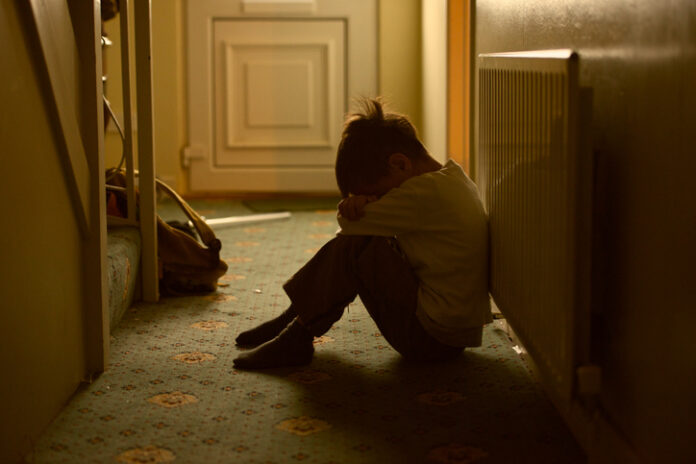The inability to see a doctor and the fear of contracting COVID-19 in a hospital led to the life-threatening, delayed diagnosis of Type 1 diabetes in children, according to a new study.
The study, published May 4 in The Journal of Pediatrics, describes cases of children who could have received life-saving treatment early on but delayed visits to the hospital due to fears of coronavirus.
In one case, an 8-year-old California boy with no significant past medical history showed up in the emergency room in pain with severe diabetic ketoacidosis (DKA), a condition of out-of-control blood sugar levels. The family tried to see a provider three days earlier but never received a response.
Another case describes a 17-year-old Indiana girl who had a medical history and developed breathing problems, but a respiratory clinic failed to investigate her symptoms beyond COVID-19 — for which she tested negative. The girl was suffering from DKA and required treatment three days later in a hospital intensive care unit.
“Appropriate measures to prevent the spread of COVID-19 are vitally important,” the study’s authors write. “But we must not let the fear of COVID-19, from health professionals and the general population, delay the diagnosis and prompt treatment.” The authors point out urine dipsticks for glucose and ketones and fingerstick tests for blood glucose avoid potentially deadly delays in diabetes diagnosis.
Concerns Beyond Diabetes
The concerns go beyond missed diabetes diagnoses, says Meg Edison, M.D., a Michigan pediatrician and policy advisor to The Heartland Institute, which publishes Health Care News.
“As pediatricians, many of us are concerned about the health consequences of social isolation for children,” Edison said. “The concern is that the morbidity and mortality of isolation will start to eclipse the morbidity and mortality of coronavirus in this population.”
Throughout the shutdown, few parents were seeking care for sick children, Edison says. Alternatively, hospitals in some states were seeing an uptick in injuries and abuse cases.
“Accidental injury and ingestion (of toxic substances) among younger children is increasing,” Edison said. “Kids get stir-crazy and parents can’t watch them every moment while they are working from home.”
State-mandated stay-at-home orders and school closures in all but a handful of states restricted access to support systems some parents particularly rely on for their children.
“Our greatest fear (has been) for the children silently suffering abuse at home, now separated from all mandatory reporters, such as teachers, doctors and pastors, who could help,” Edison said. “The combination of family financial stressors, close quarters and increased substance use by adults creates a riskier environment for vulnerable children.”
Mental Health Impact
The isolation from the COVID-19 lockdowns has raised concerns about pediatric mental health.
A survey, published April 14 in The Lancet, of 2,111 participants up to 25 years old with a history of mental illness found 83 percent with worsening conditions caused by the pandemic. More than a quarter of those surveyed found mental health and peer support groups as well as in-person services inaccessible or canceled.
“Not only are youth having anxiety precipitated by a constant barrage of unbalanced COVID-19 news with seemingly no hope in sight, but they have also essentially been imprisoned within the four walls of their homes,” Michelle Cretella, M.D. executive director of the American College of Pediatricians told Health Care News.
“Nothing and no one can replace parents and family relationships, however, the unprecedented long-term closure of schools has been disruptive and destabilizing for many youths who thrive on routine and socialization,” Cretella said. “For children already dealing with mental illness and/or special education needs, school closures have meant lack of access to services they received from school counselors, psychologists and therapists. While remote interaction is better than no contact at all, it is not as effective as face to face interactions with family, friends, teachers and therapists. Human beings, especially children, need face to face warmth and human touch.”
Edison says she concurs.
“Anxiety and depression in older kids is spiking, as many teenagers their life on hold and all the social activities and sports that bring joy and build community cancelled,” Edison said.
“Religious services are also a source of comfort to many children and adults,” Cretella said. “Here, in Rhode Island, where strip clubs are now reopened for business, houses of worship (have been) forbidden from holding public services.”
Where Policy Makers Failed
Data has shown that COVID-19 has had little impact on teens and children, Edison and Cretella say.
“Thankfully, children appear to do well with COVID-19,” Edison said. “Michigan has been in the news as a hotbed state, and out of 4,714 deaths, we’ve had one pediatric death, a tragic case of 5-year-old with a rare form of COVID-19 meningoencephalitis. The pediatric risk is not zero, so we remain vigilant, but this should be reassuring to parents.”
“COVID 19 illness in those under age 21 is overwhelmingly mild with a mortality rate close to zero,” Cretella said. “As of the end of April, the CDC had reported only three pediatric deaths due to COVID-19, but 166 pediatric deaths due to seasonal influenza. There is emerging evidence from multiple countries around the world that children may not be COVID-19 super spreaders, which means communities should be free to consider reopening schools depending on their local situation; there is no one size fits all solution.”
“Hopefully, data in the next few weeks from states and other countries who have opened up will allow us to open up more broadly for all children,” Edison said.
“In short, there is a growing chorus of physicians reminding folks that, ‘there is more to health than avoiding COVID-19,” Cretella said.
Ashley Bateman (bateman.ae@googlemail.com) writes from Alexandria, Virginia.
Internet Info:
Valentino Cherubini, Anisha Gohil, Ananta Addala, Angela Zanfardino, Dario Iafusco, Tamara Hannon, David M. Maahs, “Unintended Consequences of COVID-19: Remember General Pediatrics,” The Journal of Pediatrics, May 4, 2020: https://www.jpeds.com/article/S0022-3476(20)30578-3/pdf
Joyce Lee, “Mental Health Effects of School closures During COVID-19,” The Lancet, April 14, 2020: https://www.thelancet.com/journals/lanchi/article/PIIS2352-4642(20)3





















